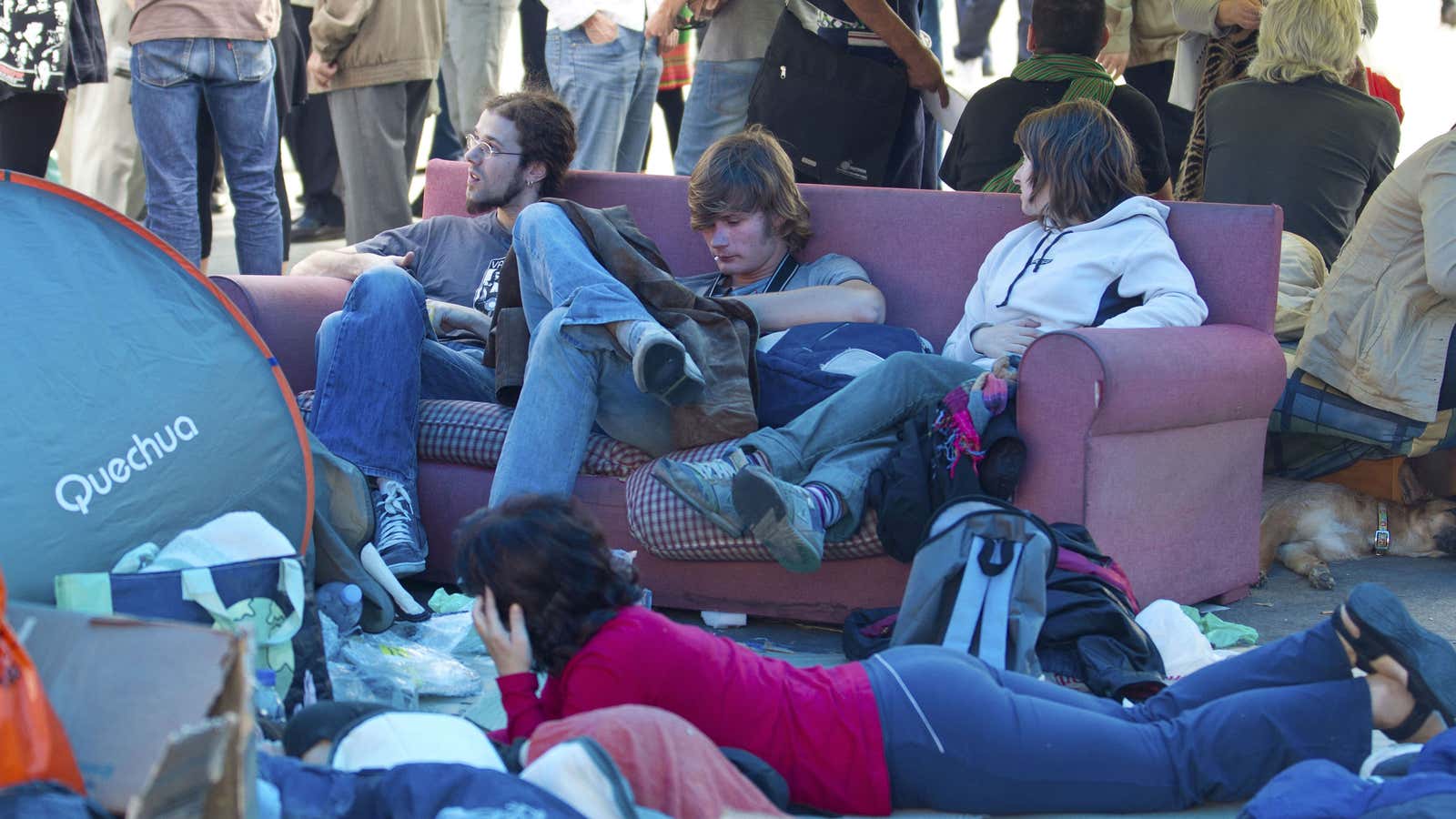The ranks of Spain’s unemployed neared 6 million people—some 26% of the population—in the last quarter of 2012, up from 25% in the third quarter (pdf). That means that one-third of the euro region’s unemployed live in Spain, reports Bloomberg. With the country hemorrhaging jobs at a pace just shy of 2,000 a day last year, and the current recession potentially lifting only at the end of the year, Spain is on track to claim even more of that share as 2013 wears on.
That might sound like the worst of it. But it’s not! That distinction goes to the unemployment rate for those under 25, which hit 60%. (While the number of unemployed 16-19 year-olds actually improved somewhat in the fourth quarter, that didn’t help the rate as the pool of eligible workers declined in size as well.)
Though the country sank into a recession in late 2011—its second since 2009—Spain’s economy contracted the fastest in nearly two years in the fourth quarter, according to the Bank of Spain. The cause, it said Wednesday was in large part a precipitous drop in private consumption stemming from a new value-added tax and cuts to public wages. Those policies reflect Prime Minister Mariano Rajoy’s efforts to slash one of the euro zone’s heftiest deficits in order to avoid a bailout.
The data on Spanish households reveals the compounding effects of Spain’s austerity-driven economic withering. In the fourth quarter alone, the number of households in which all employable members had no jobs grew to 1.8 million, an addition of nearly 96,000 households. Also, housing values are plummeting because of a bubble-era oversupply, with another 20% price drop on the horizon.
Against this grim backdrop, Spain’s youth employment looks unlikely to improve—a phenomenon that generally means bad things for an economy in the long term. Among other things, high and lingering youth employment tends to deepen income inequality and lead to social unrest. The stagnation of skill- and experience-building can also contribute to an erosion of labor pool quality, which impairs a country’s productivity.
